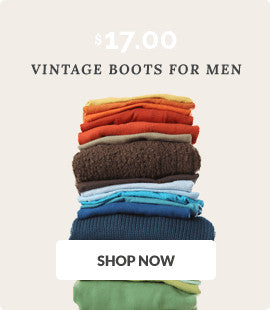
Article Detail
12 Feb
How a new skincare range for menopausal women is giving Sali Hughes hot flashes
I’ve always made a point of not writing negative reviews. My thinking is that print-space and online resources are too precious to waste on products I don’t like, especially when they often work very well for other women. Who am I to label something bad when beauty is such a subjective and diverse idea? I was brought up to believe that ‘if you can’t say something good, say nothing”, so it’s rare that I feel strongly enough to speak out.
Before I go on and in the interest of full disclosure, I have not tested a single product from the upcoming skincare range for menopausal women, by Rodial, and I have declined the opportunity to be shown them. They may well be good products – I’ll just never know because I refuse to give a minute of my time to trialling a range targeted at menopausal women, that someone has seen fit to call ‘Cougar’.
In naming their new range for mature women after a patronising, pejorative, sexist (and needlessly sexual) cliche, Rodial (whose other products bear names like ‘Boob Job’, ‘Dragons Blood’, ‘Tummy Tuck’ and – wait for it – ‘Size Zero’, which I still can’t quite believe is allowed) is, in my opinion, belittling us all.
The term ‘cougar’, as everyone knows, is given to women who are engaged in sexual relations with a man younger than them. There is, rightly, no male equivalent because the age of men in relation to their female partners is simply not an issue (if my boyfriend, seven years my senior, were my age and I his, I’d be a ‘cougar’. No one has once commented on our true situation). The cougar label comes laden with negative cultural implication of a predatory, somewhat tragic middle-aged woman on the prowl for young meat – Heaven forfend that any man should approach an older woman of his own volition, or that two people might be mutually, and equally, attracted. Actors Kim Cattrall and Demi Moore – having been routinely called cougars in the press – both described the term as negative and offensive to them and their relationships.
But when applied to beauty products, the term becomes pregnant with additional meaning. Is Rodial’s Cougar range ‘playfully’ implying that if you use it on your face, you’ll become attractive to younger men? Is it suggesting that pulling men their junior is something that women of a certain age aspire to, or perhaps should? Is this the most positive promise we can use to attract the mature woman customer – not that she may enjoy clearer, calmer, smoother skin, but that she might get a young person to desire her? The menopausal women I know aim a little higher, as it happens. And weirdly, they’re not looking to beauty brands for ideas on sexual identity either.
Maybe you think I should lighten up and stop being so touchy. Cougar is only a word, after all. It’s just a bit of fun, who cares what the bottle says? Maybe Rodial meant the American term for puma and all this is a misunderstanding. But I’m cross – mainly because I spend my life defending Beauty against claims that it causes women to judge themselves and other women negatively while simultaneously asking them to pay for the privilege. Then, just when I feel positive and inclusive brand initiatives are really advancing the cause, things like make-up marketed for bedtime, body care divided into ‘dark’ or ‘normal’ skin categories – and now, Rodial’s contribution – come along to demonstrate how far the industry still has to come. Everything I believe beauty can and should be – positive, confidence giving, life enhancing, empowering, respectful, woman-centered – appears to be absent from the branding concept of this range.
The whole thing, to me, reeks of cynicism. The reality is that the name ‘Cougar’ will guarantee press (I’m typing this, for a start). It comes with headlines that practically write themselves, making it perfect fodder for tabloids and the less responsible women’s magazines. As a result, it will probably sell out and if it does, I sincerely hope the women who parted with their hard earned money are happy with the results. But I cannot, in any good conscience, get behind such a reductive message that exploits lazy cultural and sexual stereotypes to shamelessly bait female consumers. To my mind, it’s rude to the women who keep the decidedly un-cheap Rodial in business, and unhelpful and offensive to those of us who don’t.
And yet perhaps the most disappointing thing about Cougar is that it is such a wasted opportunity. I know from speaking over the years to countless readers, forum members and clients, that the menopause can be a difficult time, where feelings of identity are sometimes thrown off kilter. Our relationships with our faces and bodies can suffer or become estranged, we occasionally seek some specialist beauty help but find our needs are ignored. There was, and is, a huge and meaningful space in the market – and in the lives of mature women – for a specific, targeted, luxurious and lovely skincare range for the unique menopausal period. And so it feels such a shame to me that when one finally came along, it risked doing way more harm than good.
The post The Change for The Worst appeared first on Sali Hughes Beauty.





